Green Screen Straws Screening
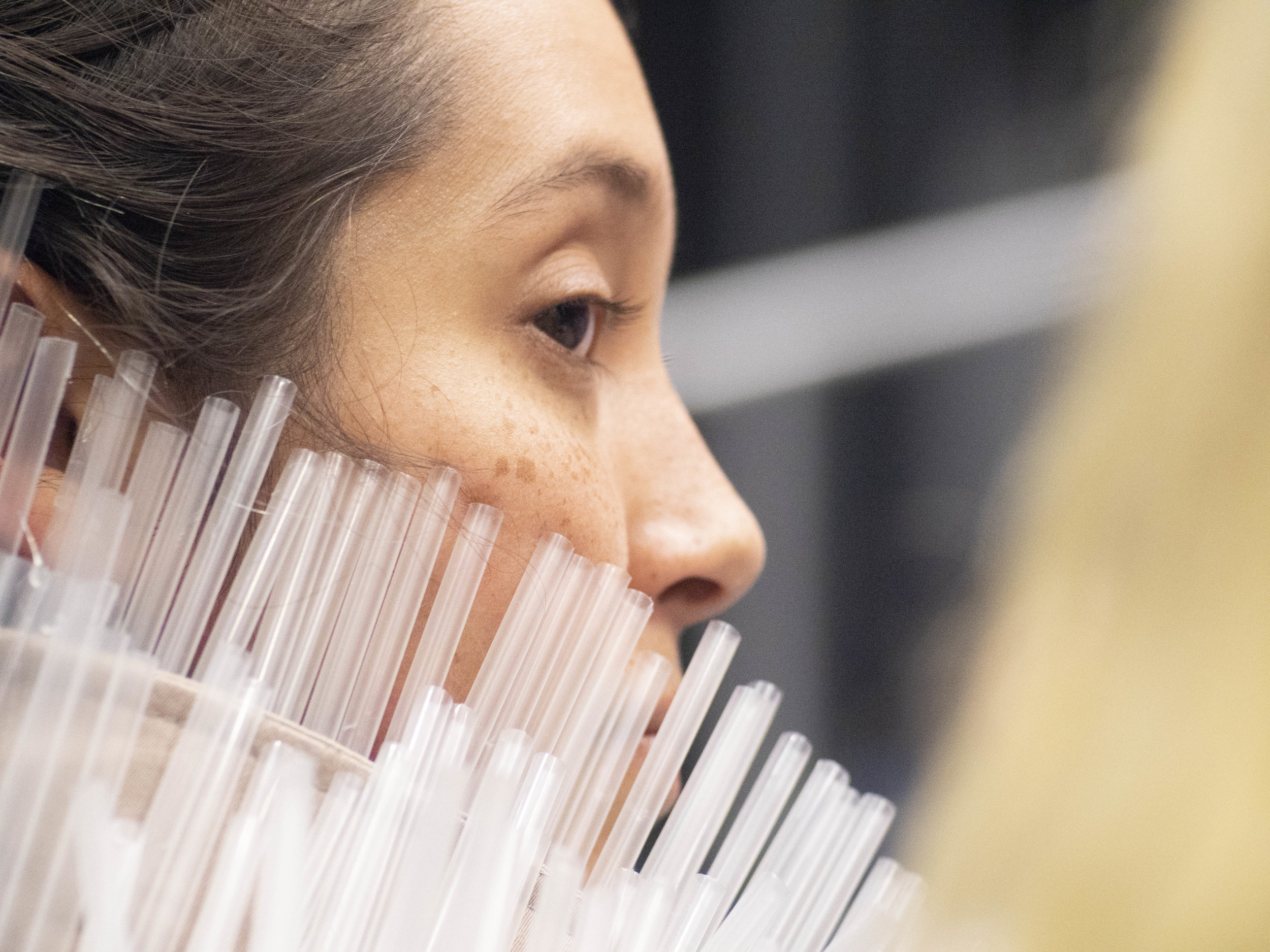
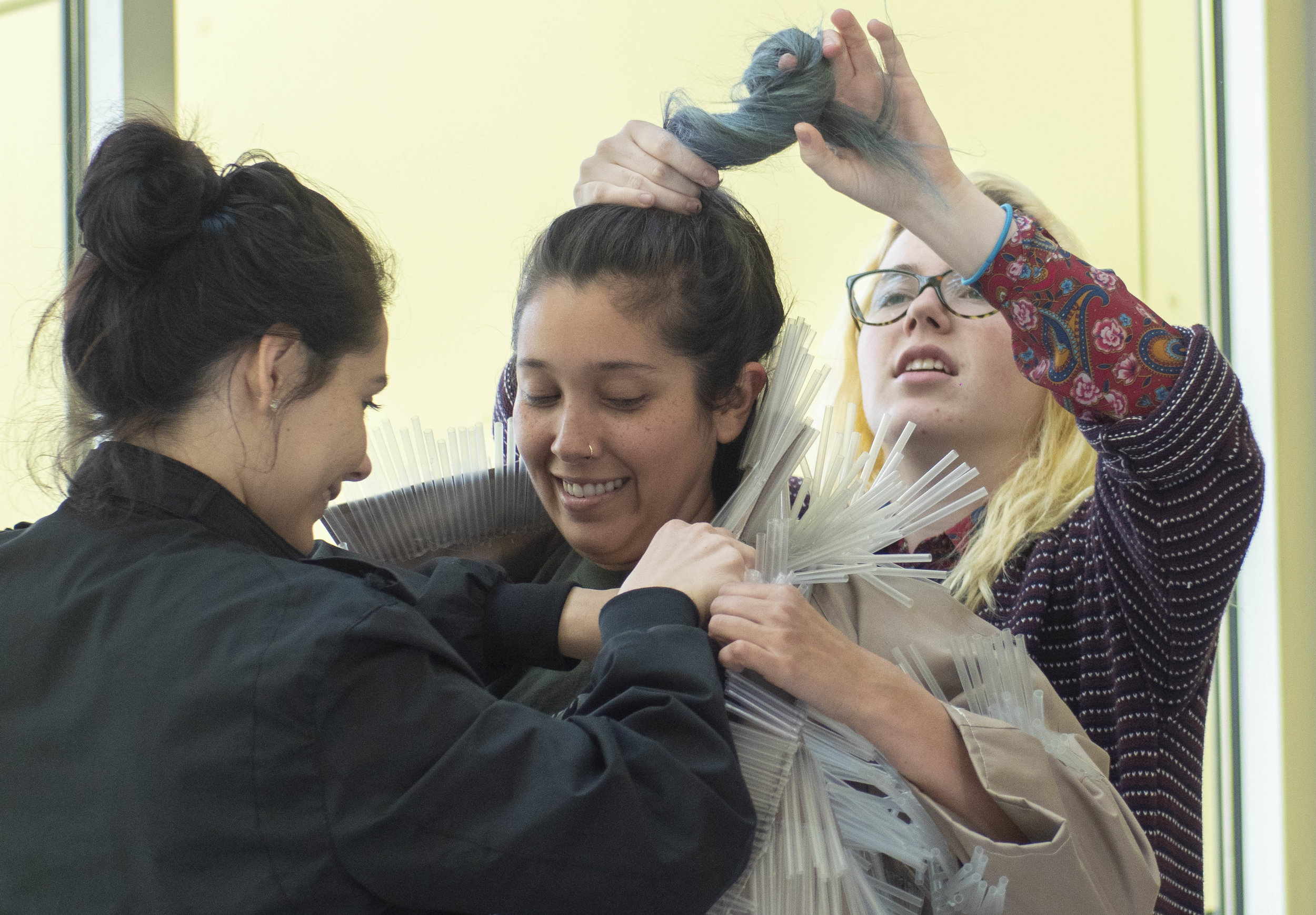
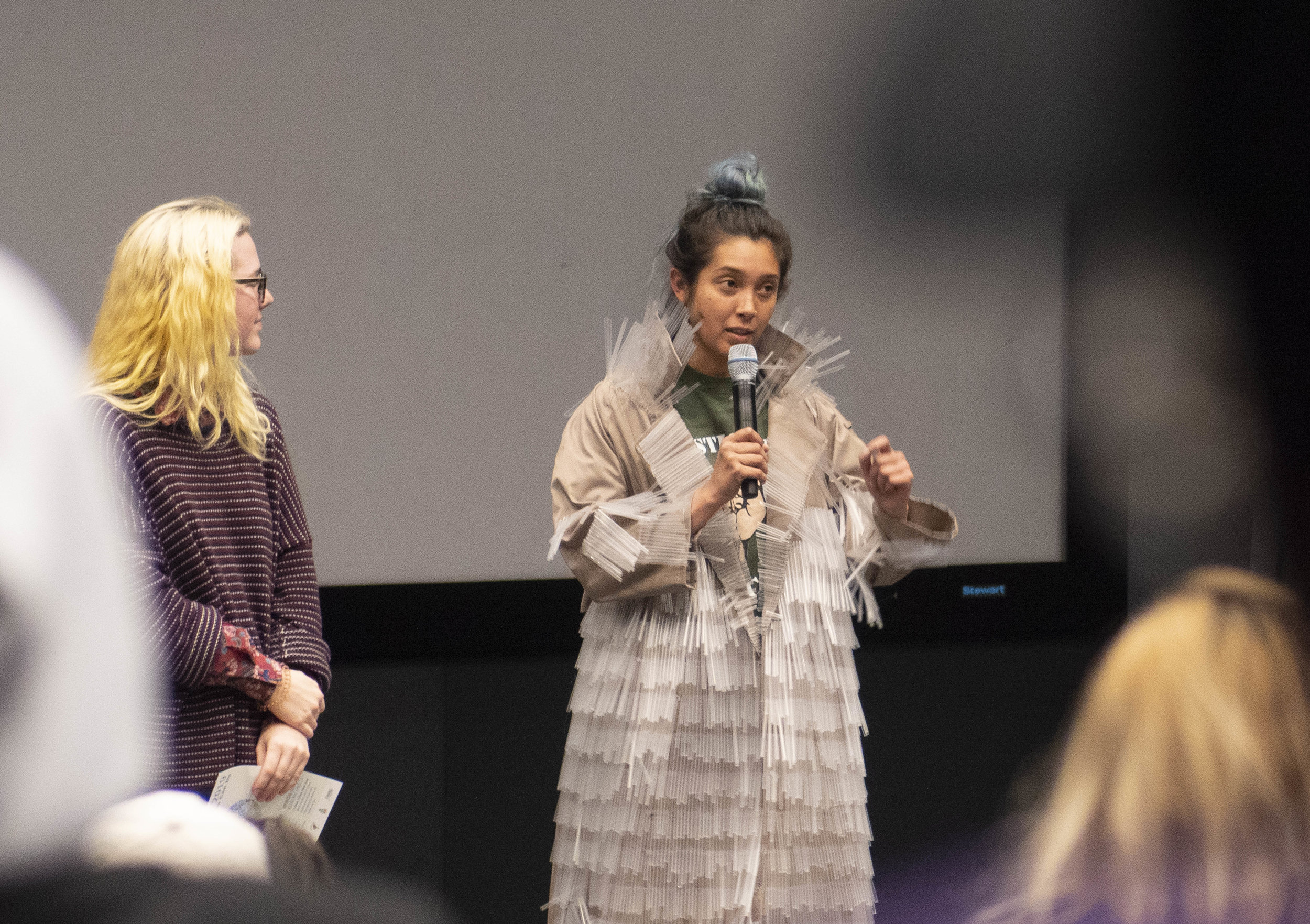
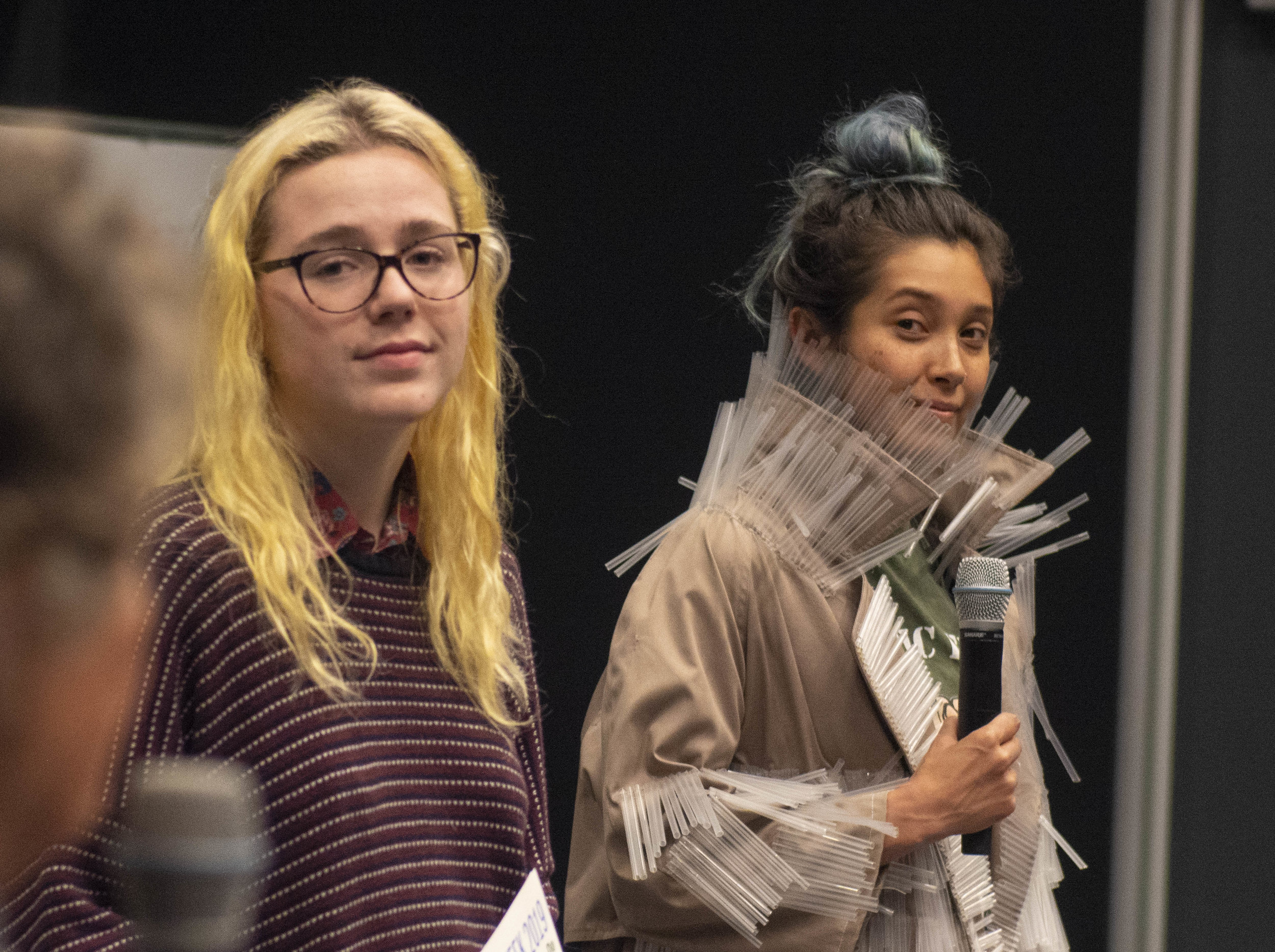
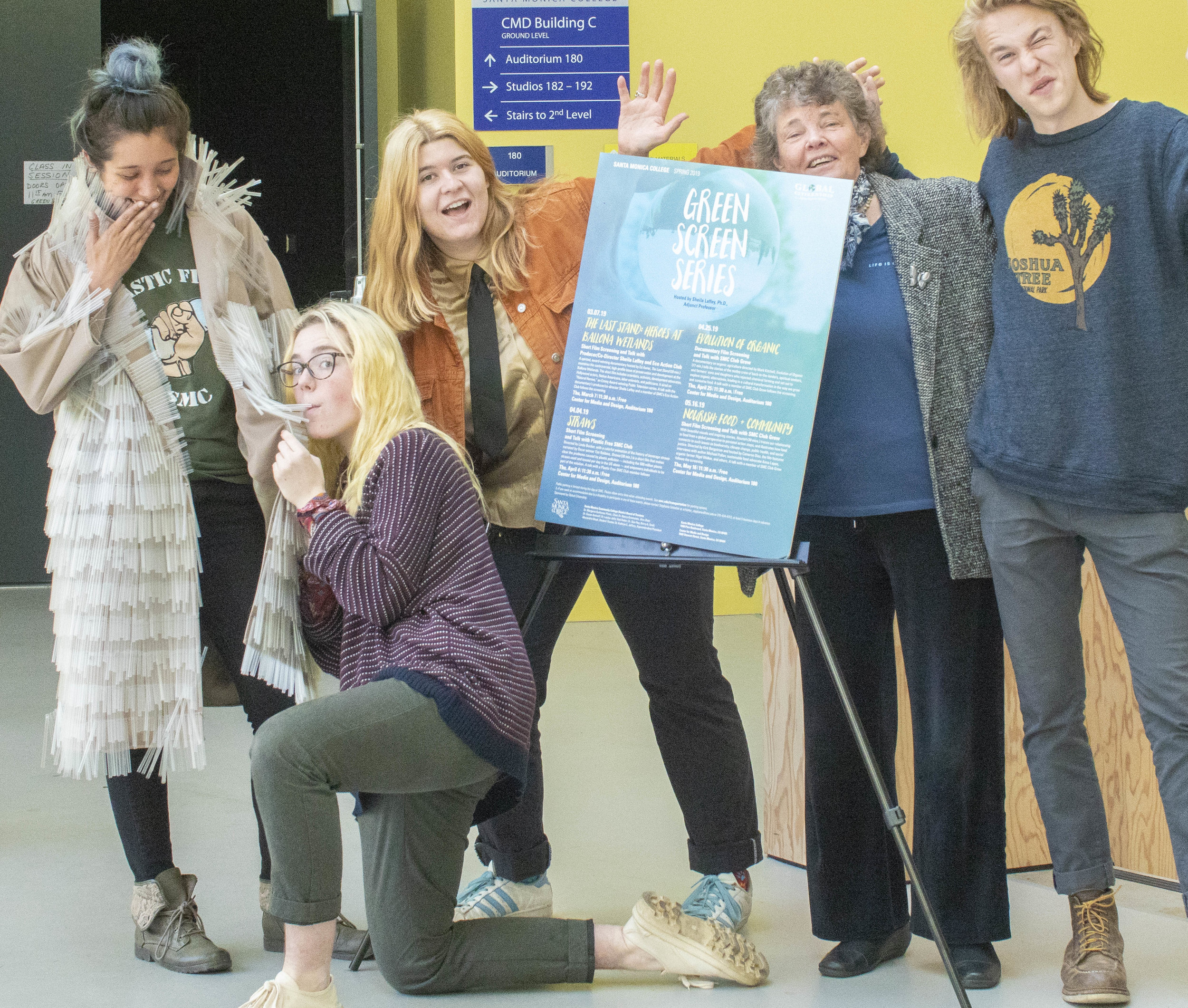
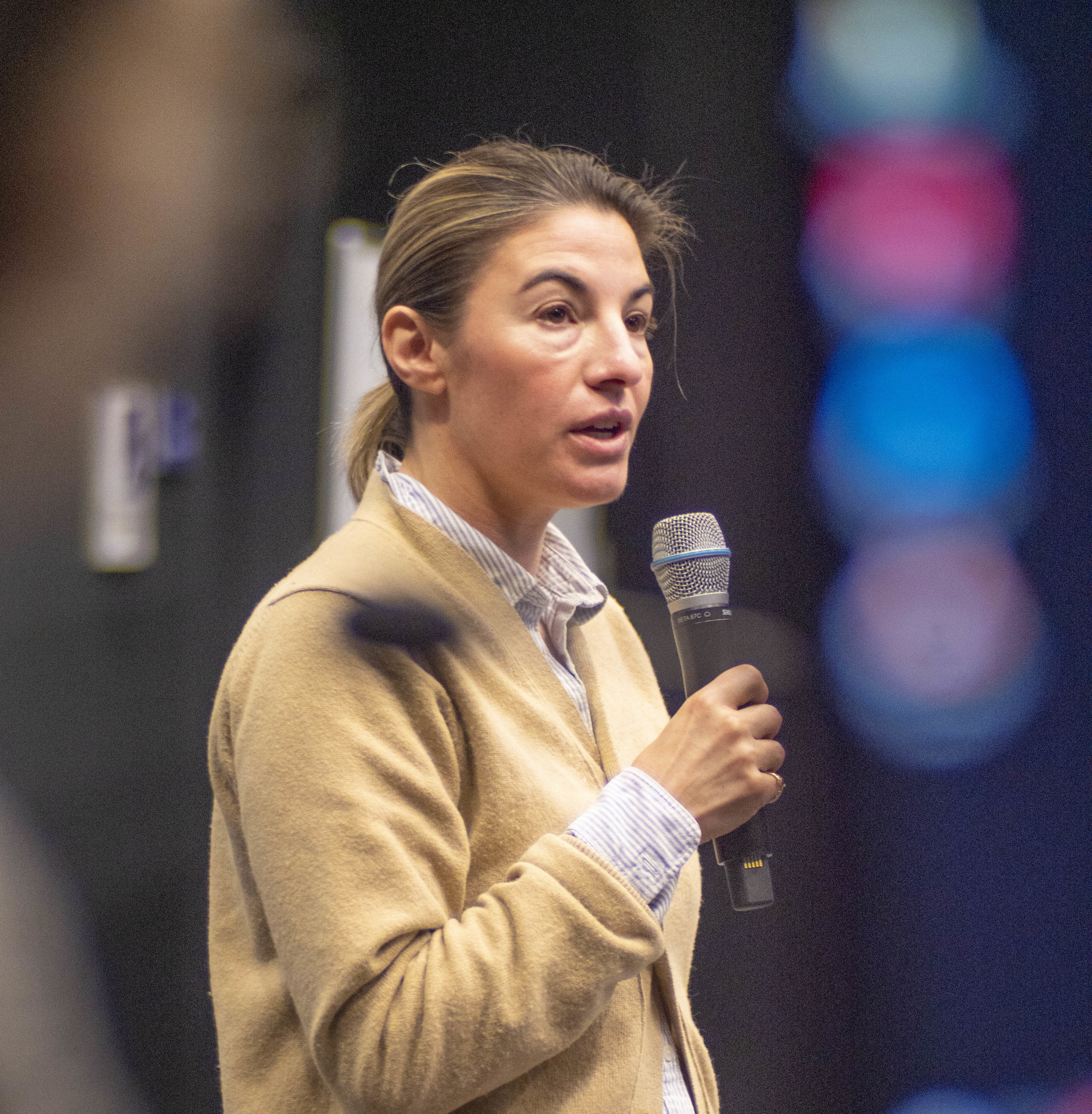
Wearing a trench coat covered in plastic straws, Carla Claure Santa Monica College (SMC) Plastic Free president stands on stage in one of the Center for Media and Design’s auditoriums. This coat is not meant to be a fashion statement; rather, the look acts as an environmental call to action. After Plastic Free SMC convinced Santa Monica College to ban all plastic straws from the school cafeteria, the club bought back the straws from the school. The club then donated them to the fashion department, which is how the coat came to life. After a brief introduction lead by Claure and other members of the Plastic Free SMC Club, Film Studies Adjunct Professor Sheila Laffey held a screening of the film Straws, directed by Linda Booker.
The film provides a history of beverage straws, and focuses on the effects of plastic pollution and initiatives that environmentalists and other activists across the country are leading to eliminate plastic waste, specifically pertaining to plastic straws. According to the film, 500 million plastic straws are used and tossed per day in the United States.
Amongst the eye-opening and heart-wrenching scenes featured in the film, Straws documents the ways in which plastic waste greatly threatens the livelihood of many marine animal species. In addition to the impacts of fishing, and the human destruction of beaches, plastic waste is a significant detriment to the health of aquatic species. Sea turtles are profiled as primary species affected by plastic straw waste. The film profiles teams of researchers who created a viral video featuring a sea turtle they had encountered who had a plastic straw stuck in his left nostril. The scientists came to the conclusion that the turtle had most likely tried to swallow a straw, regurgitated it and it ended up transferring it into its nasal cavity.
“It makes me think a lot about a poor whale that’s in the ocean and ends up dying of starvation because their stomach is full of plastic and it adds so much weight,” said Claure. “It’s uncomfortable to have it kind of poking you so I can’t even imagine that poor turtle that had the straw in his nose, I can’t even think about how painful that would be.”
In addition to the factual evidence about plastic waste, the film goes one step further and questions the need for straws. In one scene, a young boy who has clearly been bit by the environmentalist bug is chatting with a woman as he performs conservation tasks. At one point, he looks up at her and says, “do you really need a straw when you’re drinking out of a cup?” Needless to say, the child has a point.
Currently, Plastic Free SMC and Eco Action Club both give out free metal straws at club meetings in an attempt to guide students and faculty away from using straws in their lives outside of SMC. With this initiative underway, Claure hopes to work on reducing the waste of plastic utensils on campus next year. In regard to SMC as a whole, the city instated an ordinance on January 1, banning plastic and aluminum food service ware from food establishments.
The Green Screen series is an extension of Professor Laffey’s course “Green Screen: Films on the Environment and Transformation.” Laffey feels very passionately about this series, and has taught the class for three semesters in a row.
“These students are on fire, and it’s so exciting and the fact that I’m able to open up this course, this Green Screen course, that the public is invited to,” said Laffey. “We have woke students who are taking up the mantle and making a big difference on campus.”
